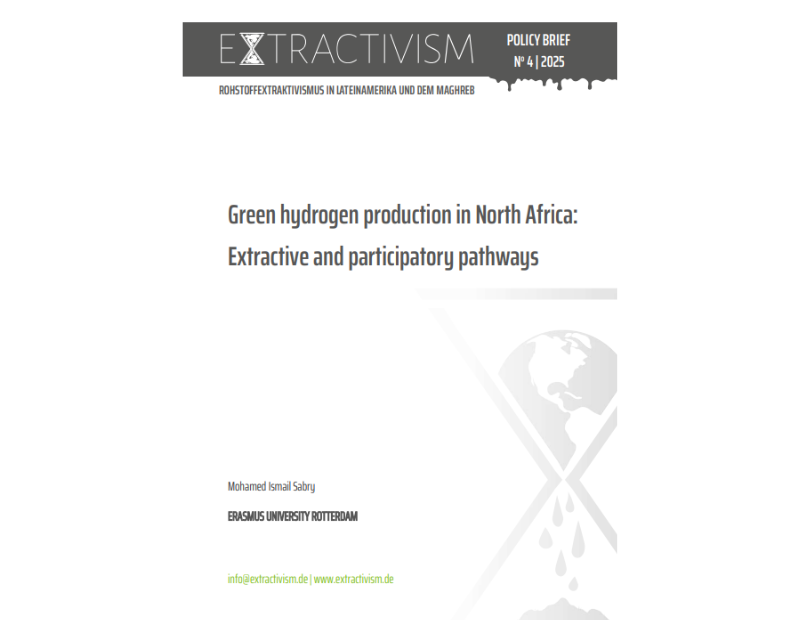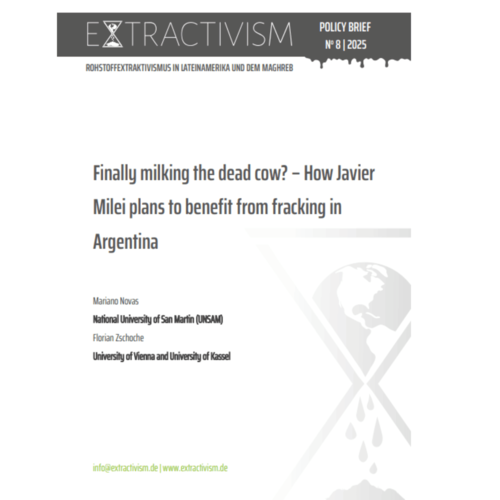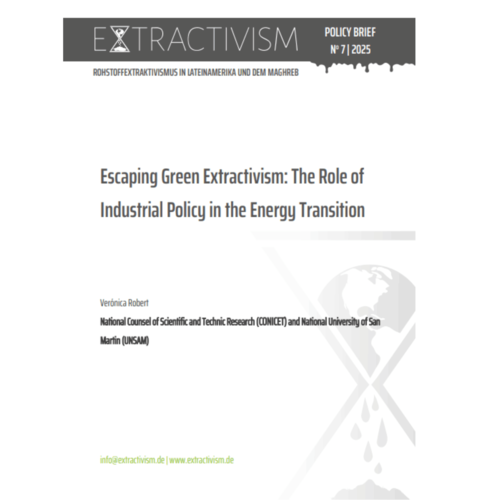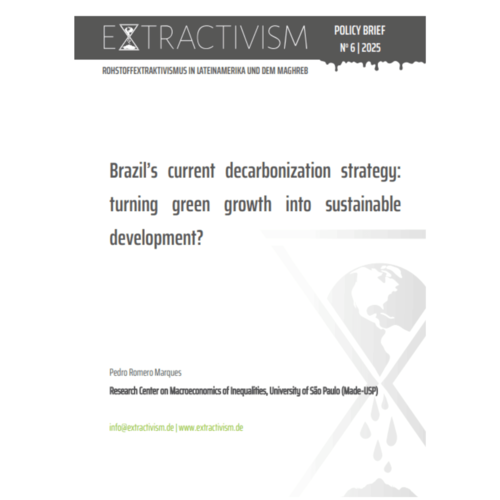This Extractivism Policy Brief 04/2025 shows:
- Green hydrogen production can follow two pathways: an extractive one led by elites, disregarding local interests, or an inclusive one balancing the concerns of all stakeholders.
- Stability in either pathway depends on support from powerful actors or coalitions capable of overcoming opposition.
- In Morocco and Tunisia, an extractive approach is expected to dominate, though Tunisia’s pathway is likely less stable due to state-society power dynamics.
- Morocco’s path appears more stable but lacks long-term guarantees; stability and inclusivity could improve with policy adjustments and realigned interests.
The Author: Mohamed Ismail Sabry is a visiting researcher at the International Institute of Social Studies (ISS) of the Erasmus University of Rotterdam. He was a research fellow at the Merian Center for Advanced Studies in the Maghreb (MECAM) in Tunis and at the Bremen University of Applied Sciences (HSB). He obtained his PhD in Economics at the Philipps University of Marburg and has a Master’s degree from the American University in Cairo (AUC).
Link to PDF: Download Extractivism Policy Brief 04/2025 (ENGLISCH)



